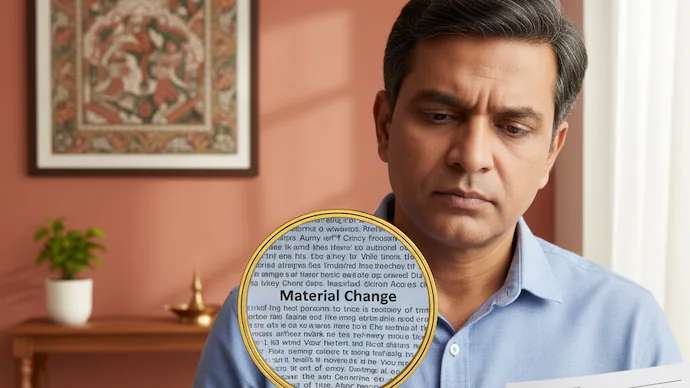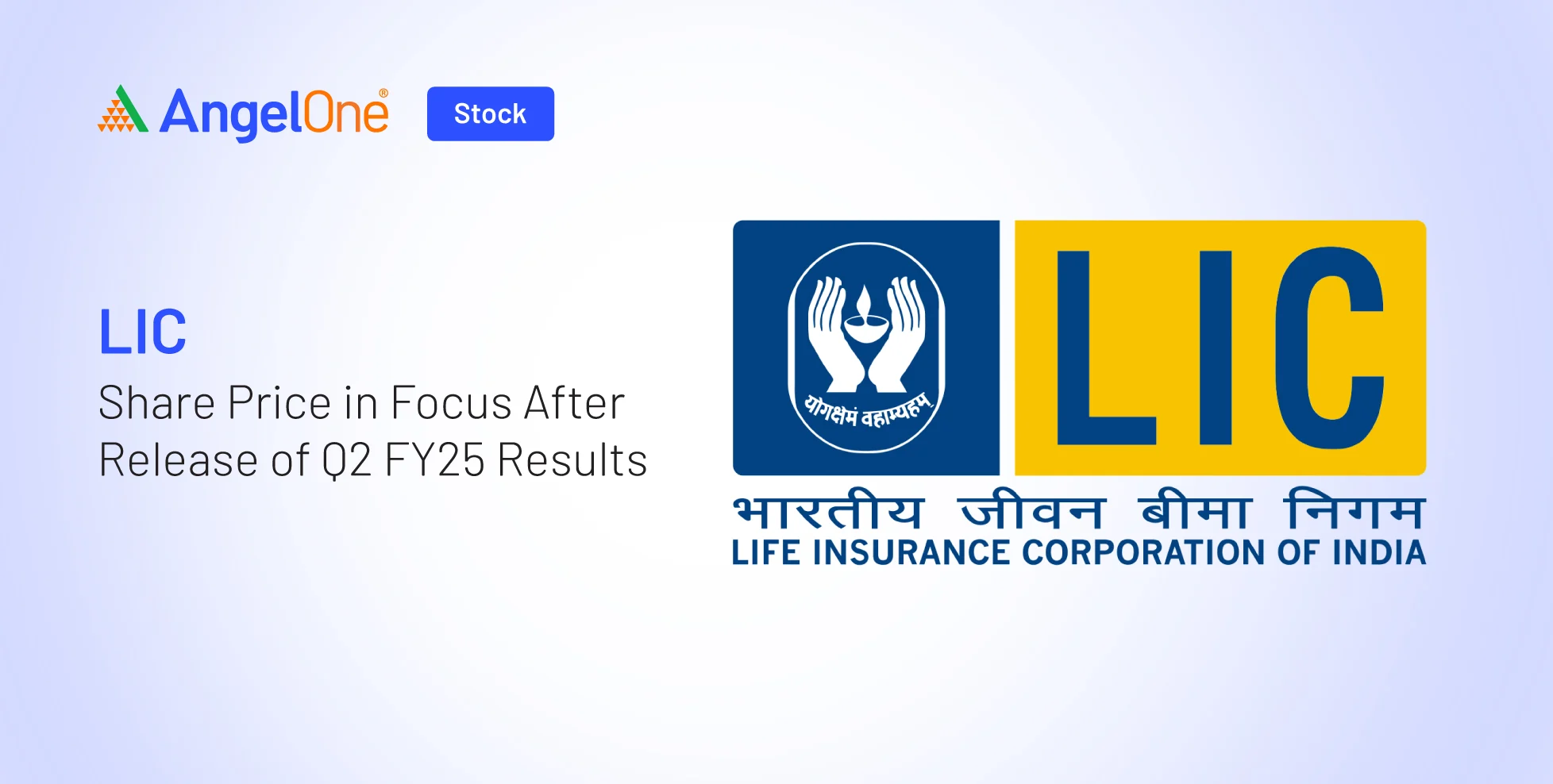Hidden in Fine Print: Health insurance is meant to offer security and peace of mind — a promise that when illness strikes, your policy will be there to support you. You pay your premiums regularly, follow the rules, and expect protection in return. However, a little-known clause quietly embedded in several retail health insurance policies could undermine that very sense of security. Known as the “Material Change” clause, this provision allows insurers to revise, restrict, or increase premiums after a policyholder files a claim or reports a new medical condition.
According to Prashant Mhatre, All India President of the General Insurance Agents Federation Integrated (GIAFI), this clause, while legally valid, could be misused at the time of renewal, leaving policyholders with higher costs or reduced benefits. Mhatre revealed in a LinkedIn post that policies from insurers such as Acko, ICICI Lombard, SBI General, and Zuno General Insurance include this clause.
While insurers argue that the “Material Change” clause ensures transparency and proper risk assessment, experts warn that its application might conflict with the Insurance Regulatory and Development Authority of India (IRDAI) rules that safeguard lifelong renewability of health insurance. In essence, a clause meant for risk disclosure could potentially be used to alter a policy’s terms to the insurer’s advantage — unless customers are vigilant.
What Is the ‘Material Change’ Clause?
The Material Change clause requires policyholders to inform their insurer of any significant change in their health status, such as the development of a new disease, chronic condition, or diagnosis after purchasing the policy. Once notified, the insurer reserves the right to review and revise the terms of coverage during renewal.
This may include:
- Increasing the premium amount,
- Restricting coverage for certain illnesses, or
- Adding new exclusions or limitations.
While insurers claim the clause is necessary for fair underwriting, experts say it contradicts the spirit of lifelong renewability guaranteed under IRDAI guidelines. In India, once a policy is issued, insurers cannot deny renewal or alter benefits due to a policyholder’s deteriorating health condition. The use of this clause, therefore, raises regulatory concerns about whether insurers are bypassing these protections under the guise of policy fine print.
Read about: InsuranceDekho Launches $2 Million ESOP Liquidity Program for Employees
Which Insurers Include the Clause?
According to Mhatre’s statement, the “Material Change” clause appears in multiple health insurance products filed with the IRDAI, including:
- Acko General Insurance
- ICICI Lombard General Insurance (Elevate and AdvantEdge Plans)
- SBI General Insurance (Arogya Supreme and Super Health Plans)
- Zuno General Insurance
Each of these insurers has legally filed the clause in their policy documents. However, the concern lies not in the clause’s legality but in its implementation — especially when used to justify premium hikes or coverage restrictions during renewal.
Regulatory Concerns and Policyholder Risks
Experts believe the “Material Change” clause could create ambiguity around policy renewability and fairness. The IRDAI’s regulations clearly state that insurers cannot refuse renewal or alter terms based on the insured’s health condition once the policy has been issued. Yet, under this clause, a simple act of reporting a new condition might allow insurers to adjust premiums or reduce benefits.
Such actions could amount to indirect discrimination against existing customers who develop health issues. It also introduces a grey area where insurers could argue they are merely adjusting risk parameters while, in effect, increasing the financial burden on policyholders who need protection the most.
Consumer advocates warn that this clause may undermine trust between insurers and policyholders, especially when such terms are not prominently disclosed at the time of policy purchase.

How Policyholders Can Protect Themselves
Despite the risks, policyholders are not powerless. Experts recommend the following steps to safeguard against misuse of the “Material Change” clause:
- Read the fine print carefully — Always review your policy document for clauses related to material changes or disclosure requirements before purchasing or renewing your plan.
- Seek clarification in writing — If a policy includes such a clause, ask your insurer or agent for a written explanation of how it will affect your renewal and premium structure.
- File a complaint with IRDAI if necessary — If an insurer revises your premium or coverage unfairly, you can file a complaint through the IRDAI’s Integrated Grievance Management System (IGMS).
- Consult an insurance advisor or lawyer — For complex cases, legal or professional guidance can help ensure that your rights under IRDAI’s lifelong renewability rule are protected.
Conclusion
The Material Change clause highlights the growing complexity of health insurance contracts in India. While it is presented as a mechanism for maintaining transparency and accurate risk assessment, it has the potential to erode consumer confidence by allowing insurers to raise premiums or restrict benefits at renewal.
At its core, health insurance is built on the promise of stability and long-term protection. Any clause that undermines that assurance — especially for policyholders who develop health issues — runs counter to the spirit of IRDAI’s consumer protection framework.
For insurers, transparency and ethical communication are key to maintaining trust. Clear disclosure about how the clause will be applied, and assurances that it won’t affect renewability unfairly, can go a long way in restoring consumer faith.
Ultimately, the onus lies on both regulators and consumers. The IRDAI must ensure that such clauses are not used to circumvent lifelong renewability protections, while policyholders must remain vigilant, informed, and proactive in defending their rights.
Also read: Triumph Tiger Sport 800: The Upcoming Mid-Weight Adventure Motorcycle Set to Rule Indian Roads
FAQs About the Material Change Clause in Health Insurance
1. What exactly is the “Material Change” clause in health insurance?
The “Material Change” clause requires policyholders to inform insurers of significant changes in their health, such as a new diagnosis or chronic illness. Once disclosed, insurers reserve the right to revise terms — including increasing premiums or adding exclusions — at renewal.
2. Is the Material Change clause legal in India?
Yes, the clause is legally filed with the Insurance Regulatory and Development Authority of India (IRDAI) by several insurers. However, its application may raise ethical and regulatory concerns if used to justify premium hikes or coverage restrictions that conflict with IRDAI’s lifelong renewability mandate.
3. Which insurers currently include this clause?
According to industry sources, the clause appears in policies from Acko General Insurance, ICICI Lombard (Elevate/AdvantEdge), SBI General Insurance (Arogya Supreme/Super Health), and Zuno General Insurance. These policies have the clause filed and approved, though its implementation varies.
4. Can my insurer increase my premium after I report a new illness?
Under IRDAI guidelines, insurers cannot penalize you for developing a new illness once the policy is issued. However, if a “Material Change” clause is invoked, some insurers may attempt to increase premiums or add exclusions at renewal. You can challenge such actions through IRDAI’s grievance redressal mechanisms.
5. What should I do if my insurer misuses this clause?
If you believe your insurer is unfairly raising premiums or restricting coverage based on the clause, you can:
- Contact the insurer’s grievance redressal officer.
- Escalate the issue to the IRDAI Grievance Cell via the IGMS portal.
- Seek advice from an insurance ombudsman or legal expert.
Timely action and written documentation are crucial to protect your policy rights.







1 thought on “Hidden in Fine Print: The Clause That Lets Insurers Quietly Increase Your Health Insurance Premium”